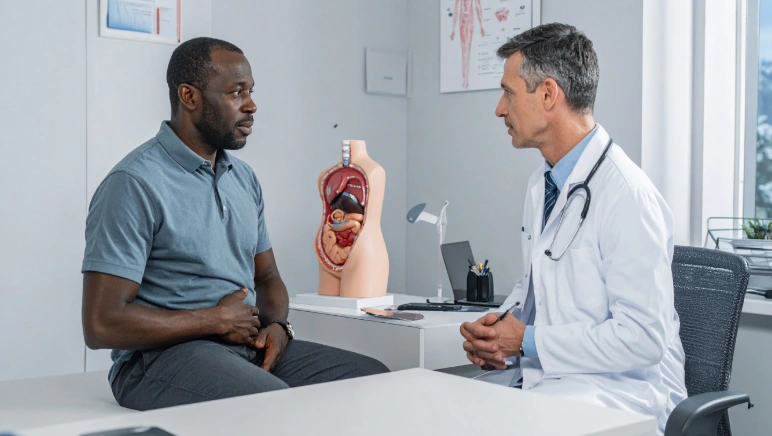
Hernias are a common medical condition that occur when an organ or tissue pushes through a weak spot in the surrounding muscle or connective tissue. While hernias can be relatively harmless, they often require surgical intervention to prevent complications and alleviate discomfort. The timing of hernia surgery is a crucial factor that can significantly impact the patient's well-being and outcomes.
Below, we provide an overview of the factors influencing the timing of hernia surgery and the potential risks associated with delaying the procedure. By understanding the importance of timely intervention and seeking appropriate medical advice, you can make informed decisions to ensure the best possible outcomes for their health.
Factors Influencing the Timing of Hernia Surgery
When it comes to hernia surgery, several factors come into play when determining the optimal timing for the procedure. Understanding these factors can help you make informed decisions and work closely with your healthcare provider. Here are some key considerations:
- Size and Severity:
The size and severity of your hernia play a crucial role in determining the urgency of surgery. Generally, larger hernias are more likely to cause complications and may require more immediate attention. Additionally, if your hernia becomes incarcerated or strangulated, which means the organ or tissue gets trapped or its blood supply is compromised, emergency surgery becomes necessary. In such cases, prompt intervention is critical to prevent further damage or life-threatening conditions.
- Symptoms and Pain:
Assessing the presence and severity of symptoms is another important factor in deciding the timing of hernia surgery. Hernias can cause a range of symptoms, including pain, discomfort, swelling, or a visible bulge in the affected area. If your hernia is causing significant pain or interfering with your daily activities, it may be an indication for earlier surgical intervention. By discussing your symptoms with your healthcare provider, you can work together to determine the best course of action.
- Individual Medical Condition:
Your overall health and any existing medical conditions also play a role in the timing of hernia surgery. If you have underlying health issues, such as heart problems, diabetes, or lung disease, they may need to be stabilized or managed before undergoing surgery. Certain medications you may be taking could also impact the surgical process. Your healthcare provider will consider these factors to ensure that you are in the best possible condition for surgery and to minimize potential risks.
It's important to note that every individual and hernia case is unique, and the decision regarding the timing of surgery should be made on an individual basis. Your healthcare provider will carefully evaluate your specific situation and take into account these factors to recommend the most appropriate timing for your hernia surgery.
Consultation and Decision-Making Process
Making the decision to undergo hernia surgery is not one to be taken lightly. It is important to involve healthcare professionals in the process to ensure that you receive the best possible care and make informed decisions. Here are key aspects of the consultation and decision-making process:
- Importance of Medical Consultation:
Seeking a medical consultation with a healthcare professional is crucial when considering hernia surgery. Your primary care physician or a specialist, such as a general surgeon, will assess your hernia, review your medical history, and conduct a physical examination (aka hernia exam). They will ask about your symptoms, pain levels, and how the hernia is affecting your daily life. This consultation is an opportunity for you to ask questions, express your concerns, and understand the potential risks and benefits of surgery.
- Involvement of Healthcare Professionals:
During the consultation, your healthcare provider will evaluate various factors to determine the optimal timing for your hernia surgery. They will consider the size and severity of your hernia, your symptoms, and any existing medical conditions. They will also review the potential risks associated with delaying the procedure and weigh them against your overall health and readiness for surgery. By involving healthcare professionals, you can benefit from their expertise and experience in managing hernias.
- Shared Decision-Making:
Shared decision-making is an important aspect of the consultation process. It involves a collaborative discussion between you and your healthcare provider to arrive at a treatment plan that aligns with your goals and values. Your healthcare provider will explain the risks, benefits, and potential outcomes of hernia surgery, taking into account your unique circumstances. They will provide you with the necessary information to make an informed decision regarding the timing of your surgery. It is important to openly express your preferences, concerns, and expectations during this process.
If you or a loved one is in need of hernia treatment, reach out to us at Hernia Innovations. As a specialized clinic dedicated to providing comprehensive care for hernias, we have a team of experienced professionals who can assess your condition, discuss your options, and guide you through the surgical process. Take the next step towards your well-being and contact us at Hernia Innovations today.
Fresh Insights from Leading Hernia Specialists
Stay informed with expert blogs on hernia symptoms, treatment options, prevention strategies, and recovery tips.






.webp)
